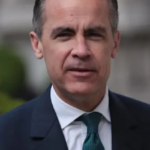First-time homebuyers may soon find it easier to enter the housing market as financial regulators explore proposals to ease existing mortgage rules. The Financial Conduct Authority (FCA) and other financial watchdogs are reportedly considering adjustments that would enable more flexibility for banks and building societies in offering loans, potentially allowing borrowers to secure mortgages with smaller deposits.
Under the current lending guidelines, there are strict caps on how many mortgages can be offered above 4.5 times a borrower’s annual salary. Lenders are also required to conduct affordability tests to ensure borrowers can manage potential interest rate increases. However, regulators are now considering ways to allow for “responsible risk-taking,” which could include relaxing these restrictions and opening up more opportunities for first-time buyers.
At the same time, banks are pushing the Bank of England to reduce the amount of capital they must hold in reserve for high loan-to-value (LTV) mortgages. This move would further expand the market for first-time buyers who are often shut out by rigid lending criteria, even if they can afford monthly repayments.
Industry experts have long pointed out that strict lending rules have made it difficult for many potential homeowners to secure mortgages. They argue that easing these criteria would help people who meet monthly payment obligations but struggle to meet the current borrowing limits.
In addition to mortgage rule changes, payment regulators are considering lifting the £100 limit on contactless transactions. The change would allow card providers to set their own payment ceilings, offering consumers more flexibility for larger purchases. The decision comes in response to growing demand for more convenient payment options as consumers continue to embrace tap-and-go technology.
The proposals are part of a broader push for a “pro-growth agenda,” as advocated by Chancellor Rachel Reeves. During a recent meeting with the Competition and Markets Authority, the Environment Agency, and other regulators, Reeves emphasized the need to rethink regulations in order to stimulate economic growth rather than focusing excessively on risk.
While Reeves has welcomed some regulatory proposals, she has also called for more “ambition and urgency” to accelerate economic expansion. This aligns with the Labour Party’s pledge to make the UK the fastest-growing economy in the G7, a goal made more challenging by higher-than-expected borrowing costs.
The potential removal of the £100 contactless cap is seen as another important shift, with critics arguing that outdated payment limits hinder consumer spending. The change could reflect modern purchasing habits and boost transaction volumes.
Support for the proposed regulatory adjustments is growing within the financial services sector, with experts noting that mortgage arrears and repossessions remain historically low. As the UK faces economic challenges, the outcome of these deliberations could help ease access to finance and stimulate a much-needed boost to the economy.









